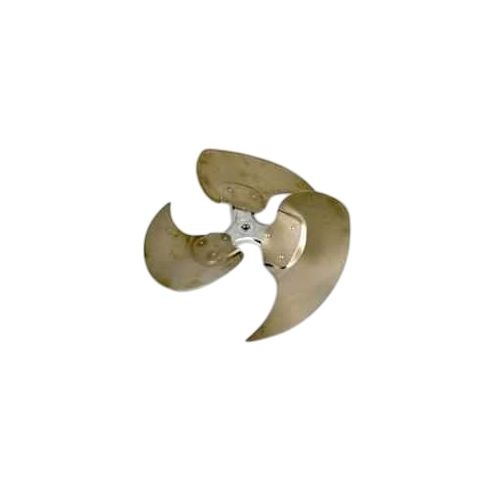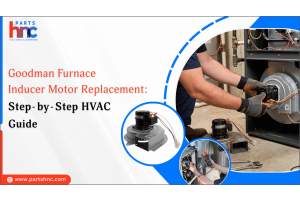How Honeywell HVAC Valves Save Energy and Improve Control in Modern Buildings
Modern buildings demand efficient and reliable HVAC systems to reduce energy costs and maintain occupant comfort. Honeywell HVAC valves play a crucial role by precisely regulating heating and cooling flows, ensuring systems operate only when and where needed.
By improving temperature regulation and reducing energy consumption, Honeywell gas valves deliver an efficiency boost to residential heating systems and overall building performance. These valves help homeowners achieve sustainability goals, lower energy costs, and maintain consistent comfort, making them an essential component of modern, energy-efficient heating systems.
What Are Honeywell HVAC Valves and Why They Matter in Modern Buildings
Honeywell HVAC valves are more than just flow controllers; they are precision tools that optimize building performance in ways most facility managers rarely notice. In modern buildings, they influence energy behavior, system longevity, and even occupant well-being in subtle but impactful ways.
Common Types of Honeywell HVAC Valves:
-
Two-Way and Three-Way Control Valves: Regulate the flow of water or steam in hydronic systems for precise temperature management.
-
Zone Control Valves: Enable individualized temperature control in different rooms or areas, improving comfort and efficiency.
-
Pressure-Independent Control Valves (PICVs): Maintain accurate flow regardless of fluctuations in system pressure, ensuring consistent performance.
-
Motorized and Modulating Valves: Use automated actuators to provide precise, dynamic control of HVAC operations.
Why They Matter:
Honeywell HVAC valves play a critical role far beyond simple flow control:
-
Energy Efficiency: Properly sized and controlled valves deliver heating or cooling only where needed, reducing energy waste.
-
Enhanced Comfort: Accurate thermal flow control keeps temperatures consistent across all zones.
-
System Longevity: Reducing strain on pumps, boilers, and chillers extends the life of HVAC equipment.
-
Smart Building Integration: Modern valves can communicate with building management systems (BMS), enabling automated, real-time adjustments for optimal performance.
Honeywell HVAC valves are subtle powerhouses—quietly enhancing efficiency, comfort, and system intelligence in ways that are often invisible but highly valuable for modern buildings.
Explore the types of valves used in HVAC systems to find how each regulates flow, pressure, and temperature to optimize system performance.
How Honeywell HVAC Valves Optimize Flow Control and System Performance
Honeywell HVAC valves are intelligent components that do more than just control fluid flow. HVAC valves for sustainable building operations optimize energy use, improve comfort, and enhance system reliability, making it essential to understand the different types and their role in maximizing HVAC performance.
Core Functions of Honeywell HVAC Valves in Modern Buildings:
-
Dynamic Load Adaptation: Unlike traditional valves, Honeywell models can adjust continuously to variable heating or cooling loads, reducing unnecessary cycling and stress on HVAC components.
-
Precision Comfort Zoning: Advanced valves allow for the creation of nuanced comfort zones, accounting for sunlight, occupancy patterns, and equipment heat, which prevents energy loss in underused spaces.
-
Predictive Maintenance Signals: Many Honeywell valves can detect flow anomalies or partial blockages early, providing actionable alerts before they become costly HVAC failures.
-
Reduced Thermal Shock: By precisely controlling fluid flow rates, these valves prevent sudden temperature spikes or drops that can strain both equipment and building occupants.
-
Integration with Sustainability Analytics: They feed real-time data into building energy dashboards, enabling predictive energy modeling and smarter sustainability planning.
-
Extending Equipment Life: By moderating flow and preventing overwork on boilers, chillers, and pumps, these valves extend the lifespan of critical HVAC systems.
In essence, Honeywell HVAC valves are not just mechanical components—they are smart, strategic devices that improve efficiency, comfort, and sustainability, making them indispensable in modern building HVAC systems.
Learn how HVAC control systems use automation and feedback to keep buildings comfortable and energy-efficient.
Energy-Saving Mechanisms Enabled by Honeywell HVAC Valve Technology
Honeywell HVAC valves do more than regulate temperature—they actively optimize energy use while maintaining comfort and system reliability. In modern buildings, these valves leverage advanced mechanisms often overlooked in conventional HVAC setups, helping facilities achieve smarter energy management.
How Honeywell HVAC Valves Enhance Energy Efficiency:
-
AI-Driven Flow Balancing: Valves use predictive algorithms to adjust fluid flow in real-time, reducing pump energy spikes and avoiding overconsumption.
-
Zone-Specific Demand Control: Heating or cooling is delivered based on occupancy and thermal patterns, cutting wasted energy in unoccupied areas.
-
Thermal Recovery Optimization: Residual heat or chilled water can be redirected between zones, effectively recycling energy within the building.
-
Minimal-Pressure Equalization: Subtle pressure imbalances are detected and corrected, minimizing unnecessary energy use in fluid distribution.
-
Predictive System Coordination: Valves communicate with boilers, chillers, and pumps to stagger energy use, avoiding simultaneous peak loads.
-
Reduced Thermal Loss in Distribution: Advanced valve designs limit turbulence and heat loss in piping, conserving energy throughout the system.
Energy-Saving Tips for Honeywell HVAC Valves:
-
Ensure valves adjust fluid flow in real-time to prevent pump energy spikes and avoid overconsumption.
-
Deliver conditioning only to occupied areas to cut energy wasted in unused spaces.
-
Redirect residual heat or chilled water between zones to recycle energy within the building.
-
Allow valves to communicate with boilers, chillers, and pumps to avoid simultaneous peak loads and reduce overall energy use.
Honeywell HVAC valves are not just mechanical devices; they are energy-smart enablers, quietly optimizing building operations, cutting waste, and supporting sustainability in ways traditional valves cannot.
Smart Building Integration: Honeywell Valves and Automated HVAC Control
Honeywell HVAC valves act as the execution layer of smart building automation, turning digital HVAC strategies into precise physical control. They ensure automated systems operate efficiently, stably, and reliably across modern buildings.
How Honeywell Valves Operate Within Smart Building Automation:
|
Control Function |
System Operation |
Performance Impact |
|
Execution Layer for Automated Decisions |
Converts BMS commands into precise zone-level flow. |
Reduces chilled water flow in unoccupied areas, saving energy. |
|
Stabilization of Automated Control Signals |
Smooths rapid or conflicting automation commands. |
Prevents pump cycling and system instability. |
|
Continuous System Feedback |
Provides real-time flow and position data for system refinement. |
Helps optimize zone temperature control over time. |
|
Localized Intelligence During System Delays |
Maintains safe limits if central controls lag or disconnect. |
Prevents overheating or overcooling during BMS outages. |
|
Adaptive Response to External Data Inputs |
Adjusts flow gradually based on weather or energy signals. |
Avoids sudden load spikes and improves efficiency. |
|
Scalable Automation Across Building Portfolios |
Applies consistent automation strategies while adapting to each building. |
Ensures uniform control across multiple buildings while tailoring flow locally. |
| Note: Honeywell HVAC control valves function as the terminal actuation layer in smart building automation; improper BMS logic, signal instability, or incorrect sizing may lead to pressure surges, control loop oscillation, or thermal imbalance, potentially impacting system safety, energy efficiency, and HVAC reliability. |
Summary: Long-Term Operational Benefits of Using Honeywell HVAC Valves
Honeywell HVAC valves deliver intelligent, proactive control that transforms building operations over time. Beyond basic energy savings, they uncover hidden efficiencies, optimize system response under variable conditions, and enable predictive maintenance. By integrating these valves, buildings gain resilient, adaptive, and future-ready performance far beyond traditional flow control.
Key Takeaways:
-
Advanced valve logic allows residual heat or chilled water to be reused between zones, reducing waste and system strain.
-
Valves adjust in real-time to fluctuations in occupancy and environmental conditions, preventing unnoticed peak load spikes.
-
Subtle pressure and flow corrections reduce micro-oscillations, improving efficiency without visible system changes.
-
Continuous valve monitoring highlights early signs of wear or flow restrictions before failures occur.
-
Valves maintain optimal operation even during central control delays or outages, protecting comfort and equipment.
When deployed across multiple buildings, valves adapt automation strategies to each facility’s unique thermal and occupancy patterns, maximizing performance across the portfolio.
Looking to optimize your home or building with HVAC valves? Shop high-quality HVAC repair parts at PartsHnC. We offer valves, thermostats, and other essential components from leading brands Honeywell, Carrier, Goodman, and Rheem, with fast shipping straight to your door, making it easy to keep your HVAC system running efficiently and reliably all year round!
References:
https://bookstation.org/book/zone-valve-wiring-diagram-4987197
https://mecnetpk.ahislam.org/wp-content/uploads/2025/11/Honey-well-brochure.pdfhttp://www.bkok.org/Valve_honeywell.html
FAQs
Can Honeywell valves improve indoor environmental quality (IEQ)?
Yes fine-tuned flow prevents hot/cold spots and maintains stable humidity. Consistent conditions are crucial for comfort and sensitive environments like hospitals or labs.
Why are pressure-independent control valves crucial in modern HVAC systems?
PICVs maintain consistent flow despite pressure changes, preventing energy waste from over- or under-heating. They optimize pump efficiency and stabilize performance across multiple zones in variable-flow buildings.
Are Honeywell valves beneficial for retrofitting older HVAC systems?
Yes they modernize old systems without full replacement, improving energy efficiency quickly. Retrofits reduce downtime and capital costs while enabling demand-responsive operation.
How much do Honeywell HVAC valves cost?
Prices vary by type and size zone valves can start around $50–$150, while modulating or pressure-independent valves may range $200–$800. Installation and integration with building automation can add to total system cost.
 Loyalty Program
Loyalty Program











